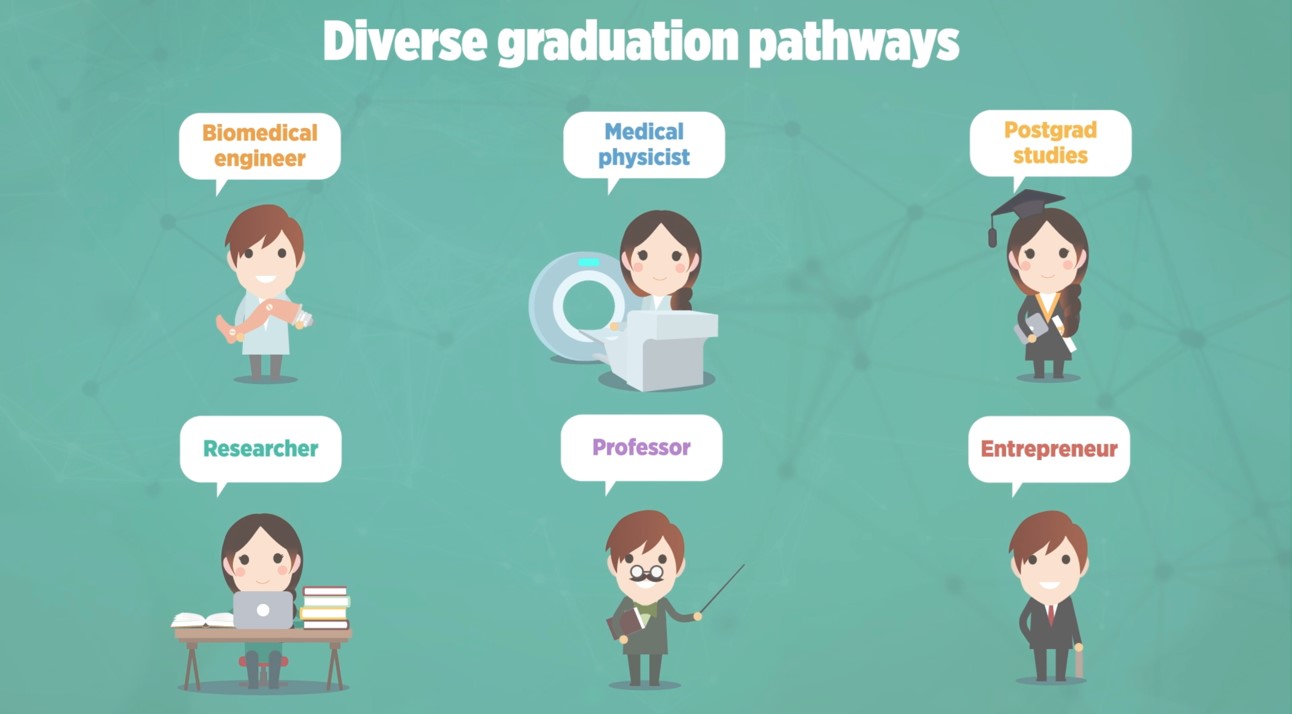
Biomedical engineering is a challenging and highly exciting profession. There is a fast-growing demand for graduates well-versed in engineering and life sciences. BEng(BME) graduates can
- work as scientists and engineers in hospitals and research institutions;
- work as R&D/service/sales engineers specializing in medical, healthcare or sports equipment;
- work as electronic/electrical or mechanical engineers; or
- join numerous local and overseas research programmes in biomedical engineering or related areas.
| BEng(BME) Graduates | |
|---|---|
| Commerce and Industry |
|
| Community, Social & Personal Services |
|
| Civil Service |
|
| Further Studies | 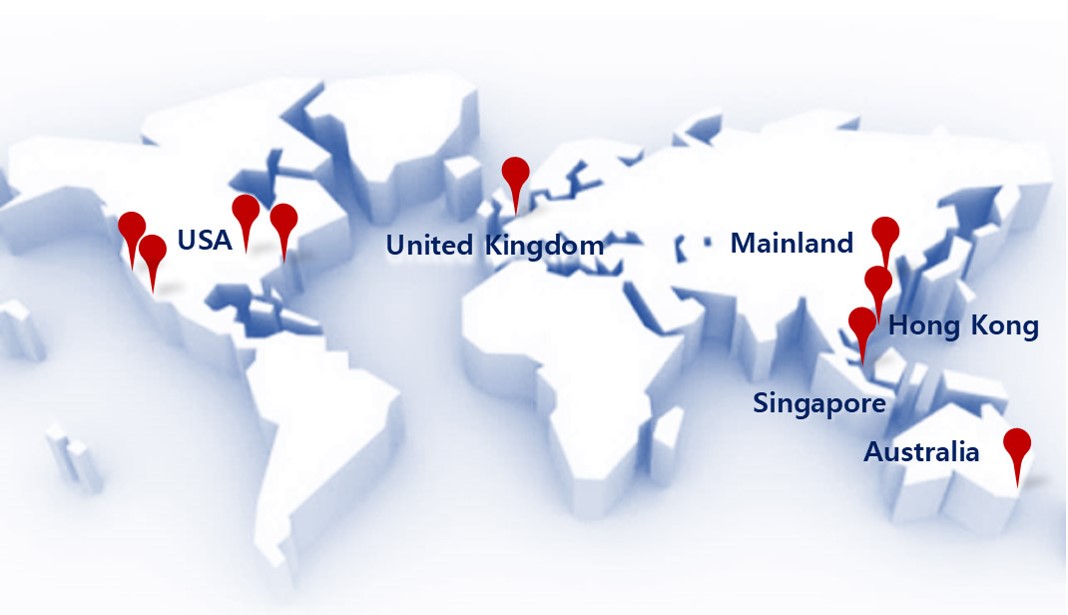
|
Messages from Alumni
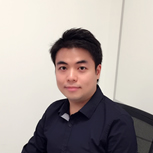
Terence Wong
Class of 2011
Assistant Professor in the Department of Chemical and Biological Engineering (CBE), HKUST
(Bio)Medical Engineering (MedE) is an interdisciplinary programme. MedE students have a unique opportunity to explore various fields and search for their own interests. I found mine – biomedical imaging. One of the most unforgettable academic experiences was meeting my final year project (FYP) supervisor, Dr. Kevin Tsia. After the fun time I had during my FYP, I decided to start my research journey (MPhil) under his tutelage. The solid training I experienced has a far-reaching influence, including the time I was studying my PhD in the Washington University in St. Louis, and even now as an Assistant Professor in HKUST.
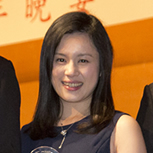
Belle Kwok
Class of 2014
Assistant Electronics Engineer, Electrical and Mechanical Services Department, the HKSAR Government
During my study in the BEng(MedE) programme, I had the opportunity to learn not only in the Faculty
of Engineering but also in the Faculty of Medicine, where we had lectures and laboratory sessions in the medical campus. The broad range of knowledge I gained in BME enables me to be proficient in my career to serve the public healthcare sector in Hong Kong. I am honored to be selected as the Best Engineering Graduate in 2016. My Final Year Project covered a wide range of subjects, including photonics, tissue engineering and microfluidics. The problem solving skills I acquired in my project benefit me in working on projects with new ideas. The mobile app for visually impaired people I developed has won the HKIE Innovation Awards for Young Members in 2017.

Jessica Kabigting
Class of 2018
Current PhD Student, Mechanobiology Institute, National University of Singapore
The BEng(MedE) programme provides students with a strong technical foundation, as well as many
opportunities to explore their interests beyond the regular classroom setting. While pursuing my
undergraduate studies, I entered a biomedical device design competition, during which I received mentorship and good training from my professors— a reflection of the programme’s guidance and support to its students. The curriculum also features an internship, which I did at an overseas research
institution. My experience in MedE equipped me with valuable engineering and research skills, all of which have proven most useful now that I am pursuing a postgraduate degree.

Angel Yan
Class of 2017
Current MPhil Student in Mechanical Engineering, HKU
Two of the most inspiring experiences I have had as an HKU MedE student were the internship that I did in NUS, and the Final Year Project I did with the Microfluidics and Soft Matter Group, which reaffirmed my enthusiasm in research and prompted me to pursue an MPhil in Mechanical Engineering. In addition, the multidisciplinary nature of the double degree BEng/BBA programme not only allowed me to see the world from a different perspective, but also made me realize the importance of doing holistic research by emphasizing entrepreneurship as a way of bridging innovative research and the market.
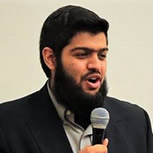
Daniyal Motan
Class of 2018
Summer Research Internship at Insigneo Institute for in silico Medicine, University of Sheffield, UK (2016)
Summer Internship at RETRACTION Ltd Hong Kong (2017)
Trainee Clinical Scientist, UCL Hospitals NHS Foundation Trust
Part-time MSc Student (Clinical Engineering), King’s College London
The MedE Programme at HKU allows students to delve into a diverse array of fields and disciplines that constitute Biomedical Engineering. The dedicated MedE laboratory course allowed me to gain transferrable lab skills and learn how contributions from various interdisciplinary fields in engineering were making a real difference in healthcare. A hands-on integrated project, where we had to design a health monitoring device as a group, gave me the confidence to work with electronics and medical devices. Finally, the flexibility and support offered by the programme for the FYP encouraged me to pursue a project that aimed to solve a challenge being faced by surgeons in collaboration with industry and clinicians. The journey with MedE was truly insightful and as I now start to train as a Clinical Scientist with the NHS in London, UK, I realize how well the MedE programme has prepared us to contribute to the healthcare sector.
